MercoPress. South Atlantic News Agency
Tag: Food and Agriculture Organization (FAO)
-
Wednesday, June 8th 2016 - 20:56 UTC
Port state measures crucial weapon to support world's first illegal fishing treaty
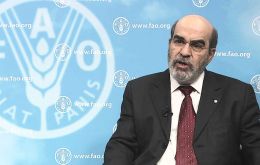
A groundbreaking international accord aimed at stamping out illegal fishing went into effect on Sunday and is now legally binding for the 29 countries and a regional organization that have adhered to it.
-
Tuesday, May 31st 2016 - 17:30 UTC
FAO sponsored illegal fishing accord scheduled to become law on 5 June; 30 countries have adhered
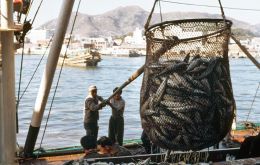
Illegal, unregulated and unreported (IUU) fishing is about to become much more difficult thanks to the imminent entry into force of the Port State Measures Agreement (PSMA), a ground-breaking international accord championed by FAO.
-
Friday, April 8th 2016 - 07:04 UTC
FAO Food Price Index in March: sugar up, dairy products down and meats stable
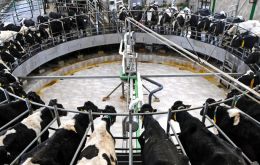
The FAO Food Price Index for March rose by 1.0% compared to February, as soaring sugar prices and continued increase in palm oil quotations more than offset plunging dairy product prices. The Index averaged 151.0 points in March, its highest level in 2016, but still some 12.0% below its level of a year earlier.
-
Friday, April 8th 2016 - 06:58 UTC
Large inventories and sluggish demand for 2016/17 global cereal production predicts FAO

World cereal production in 2016 is set to amount to 2 521 million tons, just 0.2% off last year's large output and the third-highest global performance on record, according to FAO's first forecast for the new season, released on Thursday. Large inventory levels and relatively sluggish global demand mean that market conditions for staple food grains appear stable for at least another season, the agency's latest Cereal Supply and Demand Brief predicts.
-
Friday, March 18th 2016 - 05:55 UTC
Strong 2016 wheat harvests seen in China and South Asia
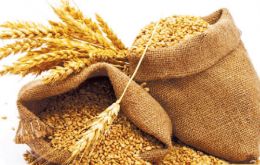
FAO's latest Cereal Supply and Demand Brief forecasts a 1.4 percent drop in worldwide wheat output in 2016, due mainly to dry weather leading to reduced winter plantings in the Russian Federation and Ukraine. However, China and Pakistan are expected to sustain near-record wheat harvests, and India's output is anticipated to recover.
-
Wednesday, February 24th 2016 - 07:50 UTC
FAO summit in Morocco addresses fish trade traceability and eliminating IUU fishing

High-level delegations of fisheries ministries from more than 50 countries are gathering in Agadir, Morocco for a summit with industry players to discuss emerging governance needs in a sector that provides the world with 17% of its animal protein and developing countries with more export revenue than meat, tobacco, rice and sugar combined.
-
Friday, February 5th 2016 - 08:31 UTC
World cereal stocks are set to end 2016 seasons at 642 million tons, higher than they began.

Weather patterns associated with El Niño are sending mixed signals about the early prospects for cereal crops in 2016, especially in the Southern Hemisphere, according to FAO's Cereal Supply and Demand Brief, released on Thursday.
-
Friday, January 8th 2016 - 20:02 UTC
FAO: major food commodities prices declined in 2015 for the fourth year running
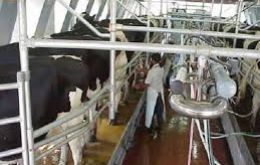
Prices of major food commodities declined for the fourth year in a row in 2015, averaging 19.1% below their previous-year's levels, as the dwindling global economy also triggered sharp price falls from metals to energy markets.
-
Thursday, January 7th 2016 - 09:13 UTC
UN declares 2016 the International Year of Pulses

The United Nations 68th General Assembly declared 2016 the International Year of Pulses (IYP) and FAO (Food and Agriculture Organization) has been nominated to facilitate the implementation of the Year in collaboration with Governments, relevant organizations, non-governmental organizations and all other relevant stakeholders.
-
Tuesday, December 8th 2015 - 00:27 UTC
Major food commodity prices down 18% over a year ago, says FAO index
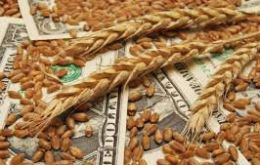
Major food commodity prices fell in November, reversing about half their rise in the previous month, as the cost of internationally-traded staples, except for sugar, fell across the board. The FAO Food Price Index averaged 156.7 points in November, down 1.6 percent from its revised October average, and 18% below its value a year earlier.
